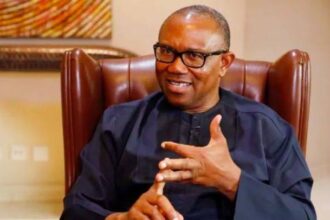Anambra state governor, Charles Soludo has said that governor should also be made to earn the minimum wage, so as to also feel the pain of the workers.
Speaking at a special edition of The Platform on Wednesday, June 12, the governor said the country is poor and currently facing financial crisis, but the extravagant lifestyle of those in powered shows otherwise.
ATTENTION: Click “HERE” to join our WhatsApp group and receive News updates directly on your WhatsApp!
He said:
“Let’s come clean and straight with Nigerians. Nigeria is very poor and broke but the lifestyle of government and government officials does not show it, especially with the obscene flamboyance in public display.”
“The poor are hungry and impatient, let’s not annoy them more with our insensitivity. In this case, I agree with reverend father Mbaka, who said elected governors should also earn minimum wage. I agree that we should be paid that so that we can feel that as well.
“In Anambra, I have not received a kobo as salary since I assumed office. I have donated my salary to the state.
“It is symbolic. It is not much. I think generally, the system is in denial. There must be some signalling, it is just the symbolism of this.”
Also Read: $2.4bn of $5.5bn refinery loan repaid, says Dangote
Making a breakdown of taxes received from citizens by state government, he added:
“That is why I proposed reinventing the new code of conduct for public officers. For the federal government, the actual projected revenue comes to about N6,160 per Nigerian, per month.
“For the states, except Lagos and a few states, most states have revenues amounting to less than N3,000 per resident, per month.
“It is from this shares per citizen that we are expected to provide all the infrastructure, debt service, pay salaries and pensions, build schools, and provide everything.
“For each of our wasteful spending, let’s be conscious of how many citizens share that we are squandering. Once we lose this consciousness about the public trust we bear, the society dies irredeemably,”

